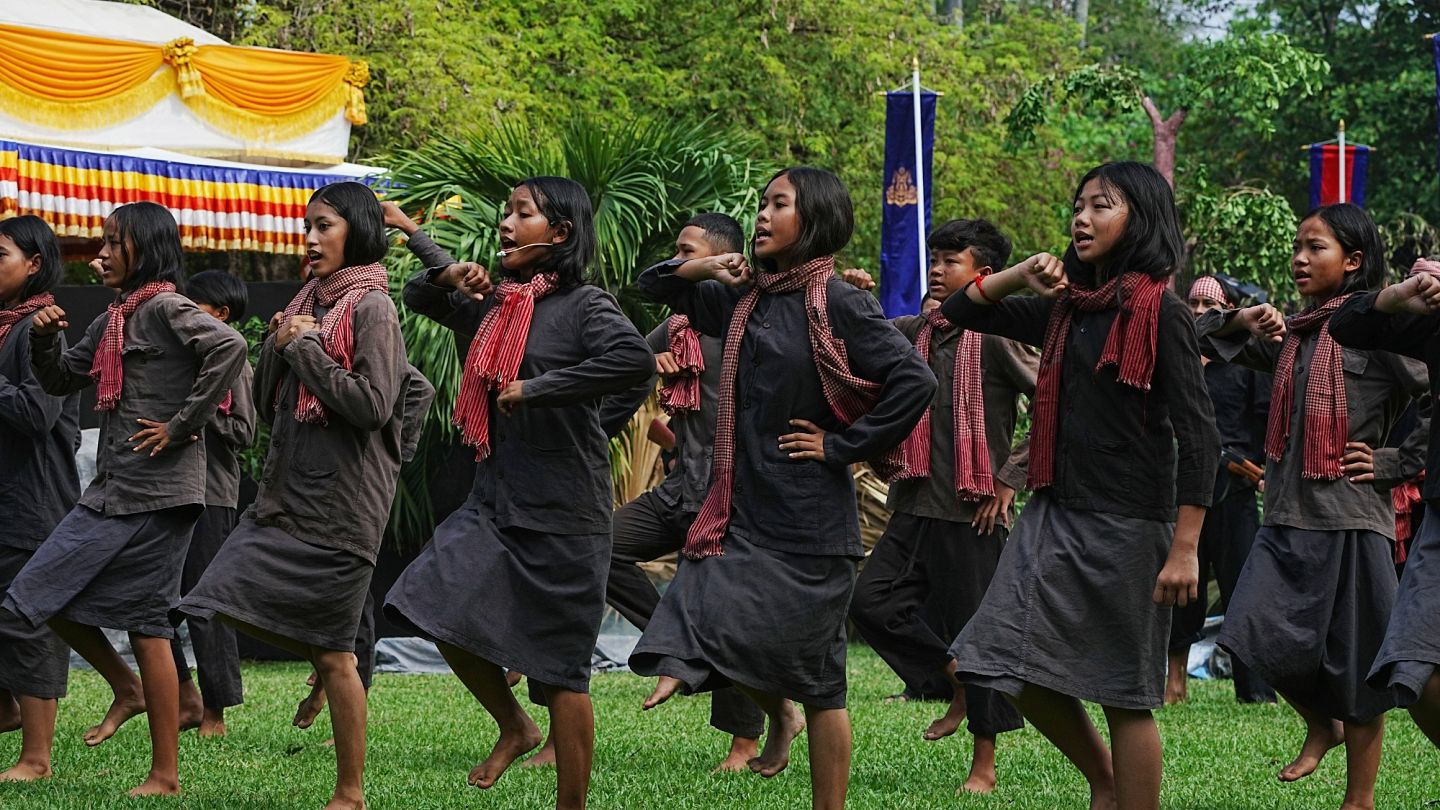Cambodia commemorates victims of Khmer Rouge genocide on its 50th anniversary
Hundreds of Cambodians marked the Day of Remembrance by attending a ceremony honouring victims of the Khmer Rouge at one of the "killing fields".
Cambodia on Tuesday marked 50 years since the country's communist Khmer Rouge launched a four-year reign of terror that killed an estimated 1.7 million people.On Cambodia's annual Day of Remembrance, about 2,000 people attended a ceremony honouring the victims of the Khmer Rouge genocide at Choeung Ek, a site of one of the most notorious "killing fields" — about 15 kilometres south of the capital Phnom Penh.Dozens of student actors from a Phnom Penh art school re-enacted brutalities under the Khmer Rouge, which held power from 1975 to 1979, when an estimated one quarter of Cambodia’s population was wiped out due to torture, starvation, executions, and misrule.The re-enactment was held near a memorial displaying victims’ skulls and mass graves where thousands of others were buried."When I come here, it reminds me, and I will never forget this Khmer Rouge regime because it was extremely cruel and barbaric," said 71-year-old Nhem Sovann, a Phnom Penh resident who lost six family members — her parents-in-law and four siblings — to the regime. She was put to work farming a rice field in the western province of Pursat."I saw with my own eyes that even children were taken and had their heads smashed against the trunk of a coconut tree," she said. 'The Khmer Rouge made our people afraid'The Day of Remembrance is a learning experience for younger Cambodians, such as 23-year-old art student Pen Kunthea. She said she first learned about the regime from her parents and from her studies, and that one of her uncles died from illness during the Khmer Rouge’s time in power."I feel scared, and I think the Khmer Rouge made our people afraid and I don’t want that regime to happen again," she said. The Khmer Rouge captured Phnom Penh on 17 April 1975 and immediately herded almost all the city’s residents into the countryside, where they were made to toil in harsh conditions. The regime ruled until 1979, when it was driven from power by an invasion from neighbouring Vietnam, which forced its ruler Pol Pot into hiding. In 1984, a new Cambodian government installed by the Vietnamese declared 20 May — the day the genocide was said to begin — as a "National Day of Hatred" for people to express their anger against the Khmer Rouge and its backers.At the time, the Khmer Rouge were still trying to regain power by fighting a guerrilla war from the countryside. They were finally subdued in 1997.In 2018, the day was officially redesignated the National Day of Remembrance, with an emphasis on honouring the victims.On Tuesday, Prime Minister Hun Manet urged all Cambodians join in preserving and protecting peace."Even though these tragic events have passed, and the Cambodian people have been living in peace, political stability, and full of development in all fields, we must not let go or forget this bitter past," he said in a statement.


